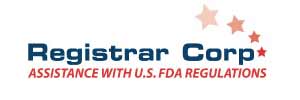Many of my clients and importers are confused about import bond. In this post you will find all the details about import bond, why you need a customs bond and when you need it? So, let’s begin.
What is a customs import bond?
A Customs import bond is a contractual agreement between the Insurance/Surety company issuing the Customs import bond, Importer of Record and Customs & Border Protection (CBP). It ensures the Customs & Border Protection (CBP) is paid the duty and taxes owed and that the importer will follow the rules and regulations of the CBP. Most Customs import bonds filed are Activity Code 1, Import Bonds. U.S. Customs requires all importers to file an Import Bond in order to clear their entries, even if the goods are duty free. The Import Bond guarantees U.S. Customs they will collect all import duties, taxes, fines or penalties, if not from the importer then from the insurance/surety company who issued the customs import bond.
How is my customs import bond used?
A continuous import bond is good at any U.S. port and can be used by any Customs Broker or Freight Forwarder you choose to clear your entries. An Importer may only have one continuous import bond on file with U.S. Customs at a time. When a bond is placed, U.S. Customs issues it a unique bond number tying the bond to the company’s Importer Number (aka Tax ID). The broker/FF then files the import documents providing the bond number upon entry. Regardless of where the bond is purchased, it remains a policy of the surety and there is no ownership of this bond by a third party (broker/FF). TRG’s Clients enjoy the freedom of utilizing multiple brokers/FF while purchasing the customs import bond direct.
Different Types of Customs import bonds:
Continuous Bond
Continuous Transaction Bond-is a self-renewing term Importer Entry Bond, which covers all Customs transactions through all ports of the country. The bond amount for a continuous bond is determined by taking multiples of $10,000 nearest 10% of duties, taxes and fees paid by an importer during the last calendar year. The minimum continuous bond amount is $50,000. This import bond is valid until it is terminated by the principal or the surety.
Single Entry Bond:
Single Entry Bond is a one-time Importer Entry Bond for a particular import shipment, which can only be used for one Customs transaction. The bond amount for a single transaction bond is equal to the total entered value of the merchandise plus all duties, taxes, and fees. However, if the merchandise is subject to other government agency requirements or visa/quota requirements, the import bond amount would be equal to three times of the total entered value.
Drawback Refund:
Drawback Payment Refunds-allows an importer to obtain a refund of 99% of the duties paid on imported goods upon providing proof these goods were exported.
International Carrier Bond
International Carrier Bond- ensures operators properly manifest all goods and passengers they carry, pay for the overtime services of Customs officers and comply with all regulations related to the clearance of their vehicles.
When is a Customs bond required?
If you are importing merchandise into the United States, (U.S.) for commercial purposes that are valued over $2,500, or a commodity subject to other federal agencies requirements (i.e. firearms or food), you must post an import bond.
You can visit the U.S. Customs & Border Protection website to know more about the customs import bond and when you need it.
If you use a Customs broker to clear your goods through CBP, the broker’s bond may be used to secure your transaction. You have the option of obtaining a “single entry” or “continuous bond”. The type of bond you elect to obtain ultimately depends on how often you import into the U.S. For instance, if you only import on occasion, the single entry bond is recommended. If you import frequently and through various ports of entry, the continuous bond is beneficial and economically the best choice.
If you are an international carrier and you transport cargo or passengers via air, vessel or vehicle from a foreign destination to the United States or a domestic carrier that merely wants to transport imported cargo “IN BOND” from one state to another, you will also have to obtain an import bond.
If you are a warehouse or facility operator and want to become a Customs bonded facility with the ability to store or secure imported or exported goods, you must obtain import bond bond. In addition, you must apply with the port director and determine the type of warehouse you wish to establish. Please visit our website for more information on Bonded Warehouse.
If you want to perform some activity in a secure CBP area, i.e. cartage, or serve as a Customs Broker or as an approved gauger or laboratory, you must obtain an import Bond.
How do I get a Customs import bond?
You can obtain a U.S. Customs and Border Protection bond through a surety licensed by the U.S. Department of the Treasury. Please visit the Bureau of the Fiscal Service for a list of sureties.
Many Customs brokers sell bonds and are also agents for sureties. For a list of licensed customs brokers, check the port of entry. You may also contact the CBP Broker Management Branch by email at brokermanagement@cbp.dhs.gov for more information.
Glenn L. Lobas – Licensed Customs Broker, Maryland, USA with over 30 years of track record in helping food importers and seafood importers get their consignments cleared quickly.
I also work with with first time importers and small scale importers helping them build their businesses quickly with proper guidance and advice.
CALL: +1-443-912-3111 OR FILL OUT THE CONTACT US FROM TO GET IN TOUCH. Learn More about my customs clearance services: Import Cars and vehicles easily into USA Import food products to USA Import products from china easily Import Furniture from China




Leave A Comment